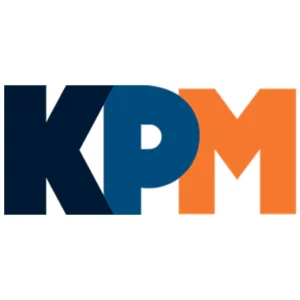How much trust do you have in your project’s cost estimation or the anticipated completion date of your schedule?
Do you find it exhausting to repeatedly commit to unattainable time and cost goals?
Wouldn’t it be valuable to understand the likelihood of achieving your project’s financial and scheduling goals?
As a project controls specialist, project planner/scheduler, cost estimator, project/program manager, or project leader, your objective is undoubtedly to guide your project to a successful conclusion, correct?
Yet, you’re likely aware that a significant portion of projects frequently veer off course due to…
- Optimistic schedule and error in cost estimating
- Disputes between owners and contractors
- Ignoring quantitative risk management
You know, projects are always risky, but conducting a Quantitative Risk Assessment reduces the possibility of delivering overoptimistic cost and schedule targets, boosts the confidence in your project’s cost estimate or your schedule completion date, and therefore increases the likelihood of your project success.
Irrespective of your level in your organization and whether you are working on a multibillion-dollar airport project or a $100k remediation project, by understanding the correct foundational approaches to Quantitative Risk Analysis (QRA), you will be able to deliver more realistic project plans that can guide the project to the successful completion.
So, isn’t it time to integrate Cost & Schedule Risk Analysis more seriously in your projects?
Introducing
Integrated Schedule & Cost Risk Analysis Training
Discover the Method for Accurately Assessing Project Risks,
Enabling the Creation of Achievable Time and Cost Goals.
Great news! We’ve developed an exceptionally practical online course on Integrated Cost and Schedule Risk Analysis using the Risk Driver Approach. By the end of this training, you’ll be fully equipped to conduct your own quantitative risk assessments.
This course is built upon the same training methodology the instructor used to successfully onboard new risk analysts, many of whom had little to no prior experience in risk management when joining the team.
Our comprehensive course modules are strategically designed to fast-track your understanding of every aspect of project risk management, preparing you for roles in risk management sooner than you might expect.
Rather than inundating you with theoretical concepts and abstract notions, we’ll immerse you in detailed case studies that mirror real-world projects, showcasing the practical application of risk management solutions.
We’ve created examples and exercises to facilitate your learning journey, ensuring you gain valuable experience in devising tangible risk management solutions.
The training course on Integrated Cost and Schedule Risk Analysis consists of 8 sessions, totaling 32 hours, which span over an 8-week period.
Each session will provide an in-depth understanding of the concepts related to Quantitative Risk Assessment, starting from conducting a qualitative risk analysis workshop to performing a quantitative assessment of cost and schedule risks, including reporting and mitigation strategies.
Furthermore, you will gain practical experience by applying these principles to a real-life Offshore Gas Wellhead Platform Project in each session of the course. This hands-on approach allows you to develop practical skills in both qualitative and quantitative risk assessment.
Throughout the course, you will work with real-life offshore WHP project examples and case studies. These practical examples will enable you to independently conduct your own quantitative risk assessments, with some guidance and supervision, by the end of the training program.
To begin, you only require a foundational grasp of project risk management principles and a moderate level of proficiency in MS Excel and Primavera P6.
Below is the course itinerary, outlining the content covered in each session throughout this 8-week online program:
Course Outline and Agenda
The training course on Integrated Cost and Schedule Risk Analysis consists of 8 sessions, totaling 32 hours, which span over an 8-week period.
Each session will provide an in-depth understanding of the concepts related to Quantitative Risk Assessment, starting from conducting a qualitative risk analysis workshop to performing a quantitative assessment of cost and schedule risks, including reporting and mitigation strategies.
Furthermore, you will gain practical experience by applying these principles to a real-life Offshore Gas Wellhead Platform Project in each session of the course. This hands-on approach allows you to develop practical skills in both qualitative and quantitative risk assessment.
Throughout the course, you will work with real-life offshore WHP project examples and case studies. These practical examples will enable you to independently conduct your own quantitative risk assessments, with some guidance and supervision, by the end of the training program.
To begin, you only require a foundational grasp of project risk management principles and a moderate level of proficiency in MS Excel and Primavera P6.
How Does It Work?
To gain access to the training, you only require a high-speed internet connection through browsers like Google Chrome, Safari, or Internet Explorer 9 or a more recent version. Additionally, you’ll need a login ID and Passcode for your account, which will be sent to you via email upon enrollment.
Training Modules will be accessible via desktop computers, laptops, as well as mobile devices such as iPhone, iPad, Tablets, etc.
If you follow the program according to the planned training schedule, you will be able to finish the course in 8 weeks. However, you will have access to the entire course material for one year after your enrollment. You can refer back to the course videos and material at any time.
What You’ll Gain Upon the Completion of the Training
At its core, Quantitative Risk Analysis (QRA) revolves around the ability to pose precise questions to obtain the necessary information from the appropriate experts.
This course aims to illustrate that you don’t necessarily need an in-depth understanding of a specific field to conduct risk assessments. Instead, it’s about your ability to extract relevant insights from those who possess expertise in the subject matter.
The instructor conducts approximately 30 risk workshops annually, covering diverse projects such as major bridges, metro rail systems, and nuclear power stations. This course will equip you with the foundational knowledge to reach a similar position in your career.
By completing this course, you’ll gain the capability to approach projects comprehensively and identify common areas where project risks often hide.
We will provide you with the technical tools required to plan, execute, and manage your own risk assessments.
Beyond the technical aspects of risk assessments, your ability to lead meetings, facilitate risk workshops, and effectively communicate complex data to non-specialists will be a distinguishing skill in your career. This course will empower you to cultivate these talents and stand out.
For more experienced professionals, risk management is increasingly gaining prominence in senior leadership and is becoming a central component of program controls and decision-making. Understanding the QRA process and how to leverage its outcomes is becoming ever more crucial, and you will acquire this knowledge upon completing this training.
Upon successfully completing the training, you will also receive an official certificate of completion.
What Is UNIQUE About This Training?
Who Is This Training For?
This training is for you if…
✔ You are a Project Controls professional
✔ You are a project Planner/Scheduler
✔ You are a Cost Estimator
✔ You are a Project/ Program Manager
✔ You are a project
✔ You are new to the world of Risk Management and have little or no experience in risk modeling, statists, risk analysis, and reporting.
✔ You already have been engaged in some Quantitative Risk Analysis, but you’d like to get formal training to brush up your knowledge or get practical guidance in conducting cost and schedule risk analysis in your projects.
Who Is This Course NOT For?
This training is NOT for those who….
❌ Don’t have a basic understanding of project scheduling, cost estimating, and project risk management concepts.
❌ Don’t enjoy working with numbers and analyzing the outputs of a graphical report.
Are There Any Pre-Requisites for This Course?
To take this training all you need is:
➥ A reasonable understanding of project risk management, project scheduling, and cost estimating concepts
➥ A basic understanding of mathematics as some of the modules will cover statistics and probabilities at a high level
➥ Some experience with Primavera P6 or another scheduling tool and moderate MS Excel skills
This Training Comes with Awesome Benefits and Bonuses that You Cannot Miss!
- Project Schedule Primavera P6 XER Native file of Case Study
- Risk Register Template in MS Excel Format with all Formula
- Risk Report Template
- Schedule Review Checklist
- Schedule Health Check Report
- In-Depth case Study
- Access To “Ask the Instructor on WhatsApp or Forum in the KPM website
- 24/7 Access for 12 Months
- Official Certificate of Completion
- Course Material and Supportive Documents
- Private & Secure
About the Instructor Shervin Karimianpour
Shervin, a certified PMP & Risk Management Professional (PMI-RMP) and an SRA Facilitator brings over a decade of experience in risk management. He has led risk management on a wide range of multibillion-dollar oil and gas, and industrial projects in Malaysia, Iran, and the USA.
Shervin has extensive experience in risk analysis and has completed complex analysis on a variety of mega oil & gas projects for both large private sector clients.
He has completed entire risk analysis on projects including facilitation of risk workshops, development of cost and schedule risk models, risk analysis, and detailed report writing.
Shervin’s specific skill sets include workshop facilitation, risk analysis, Monte Carlo simulation, CPM scheduling, schedule variance analysis, earned value analysis, contract reviews, procurement, bid leveling, and value engineering.





